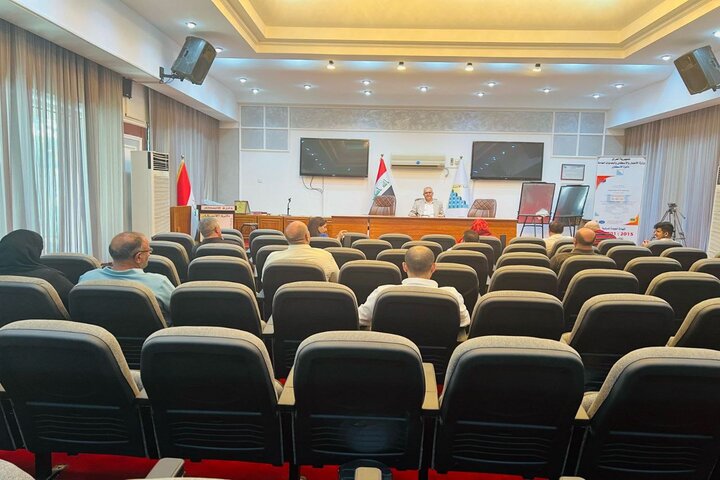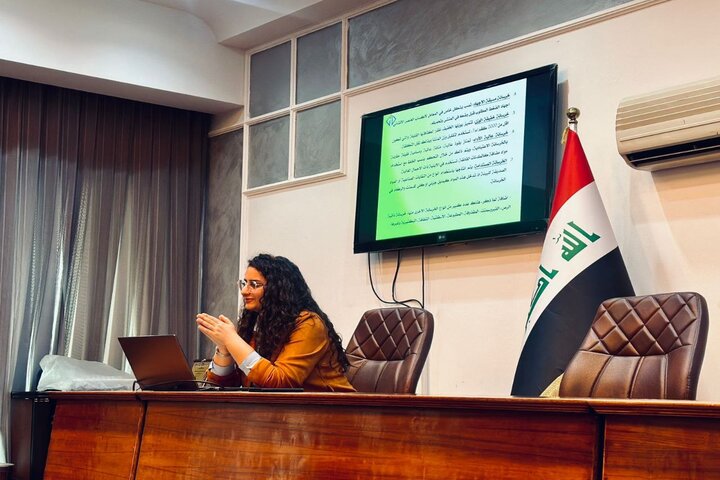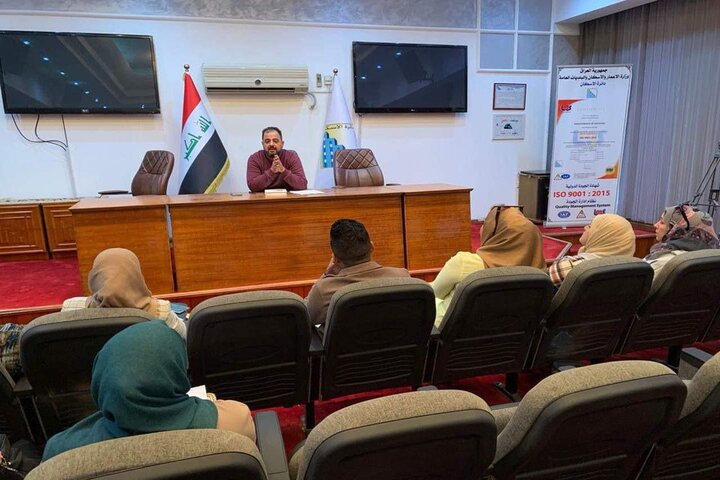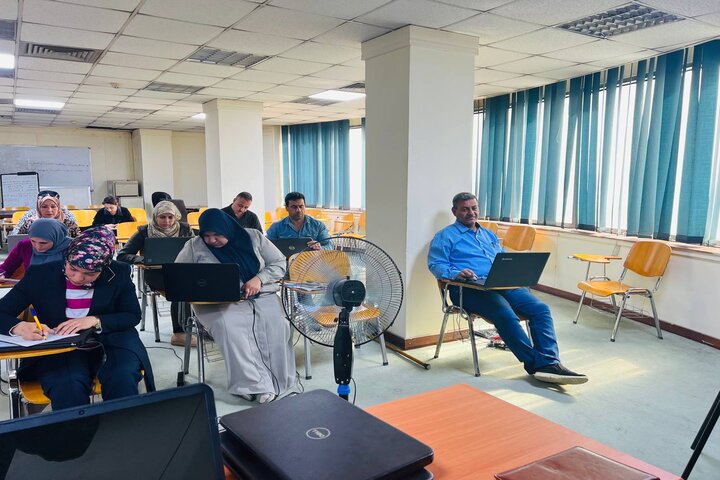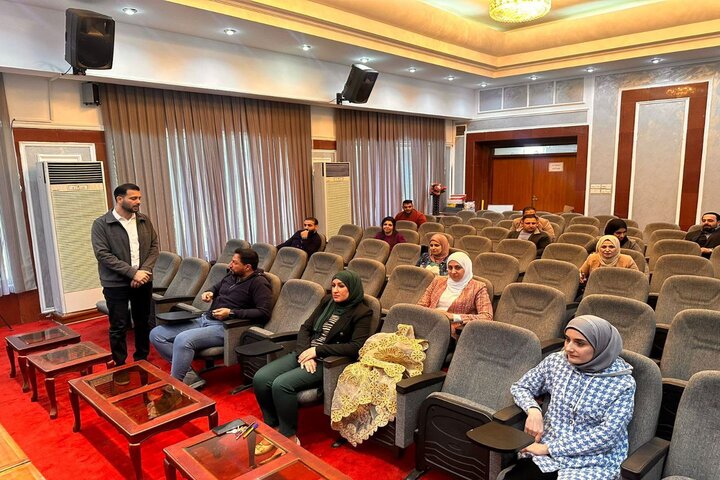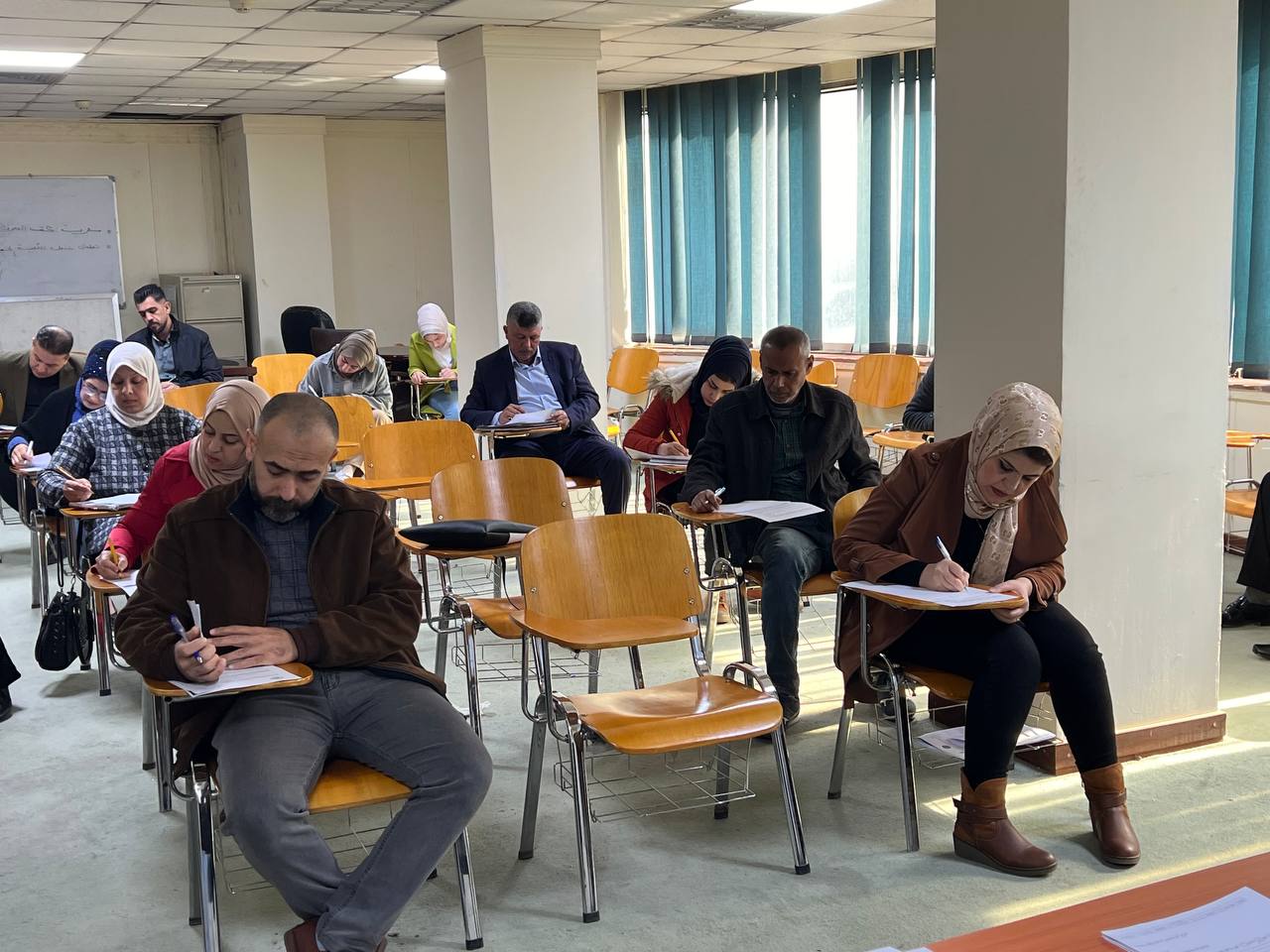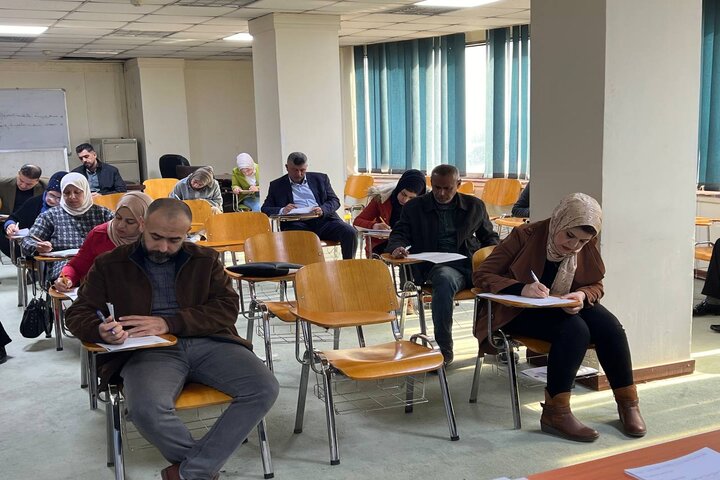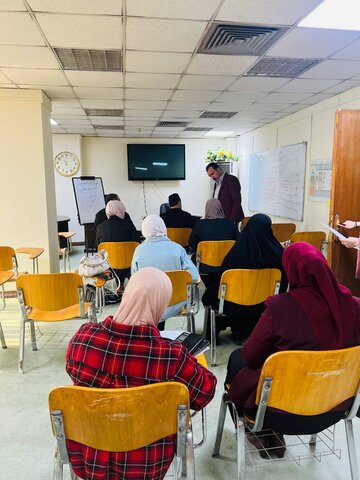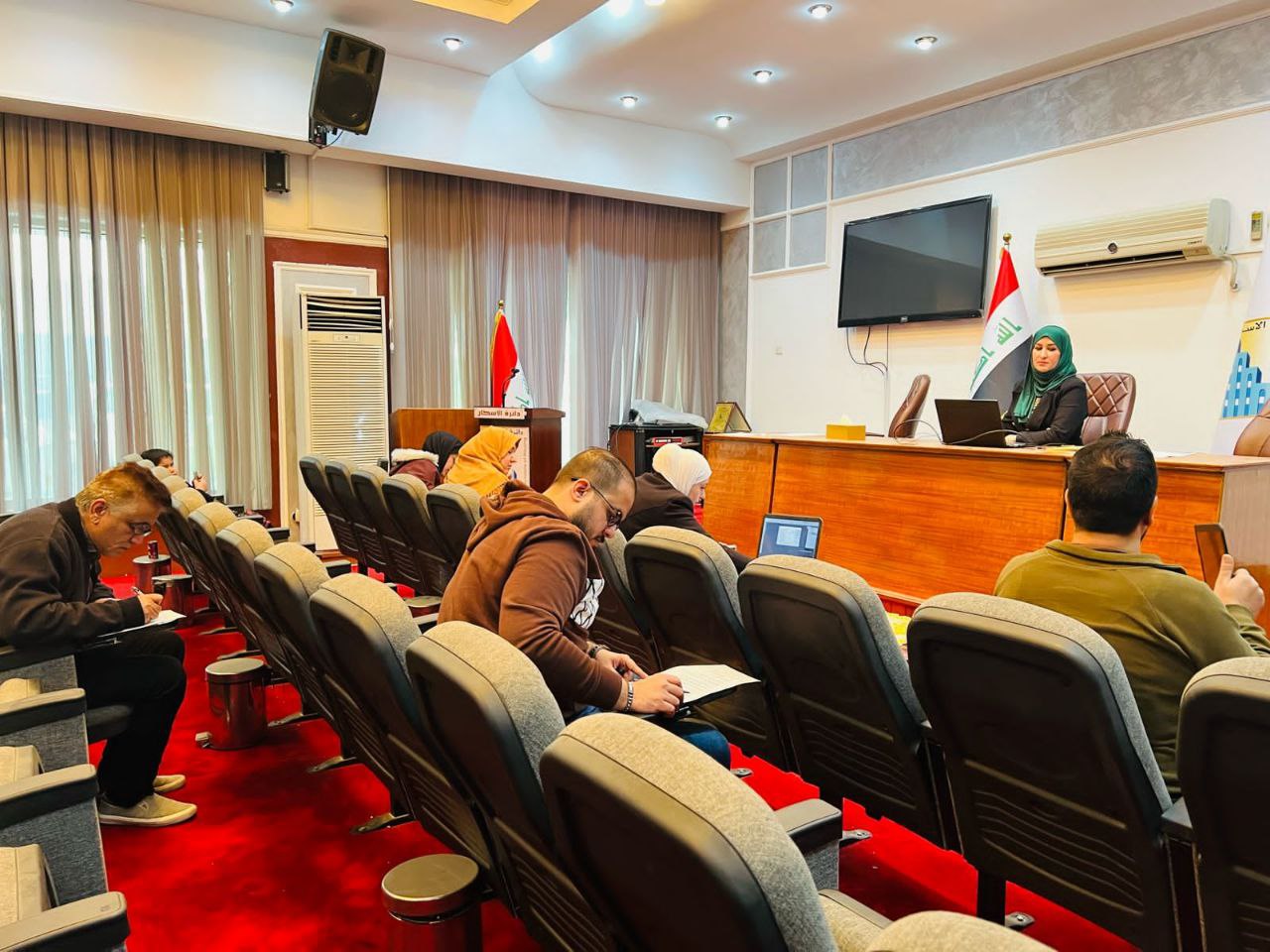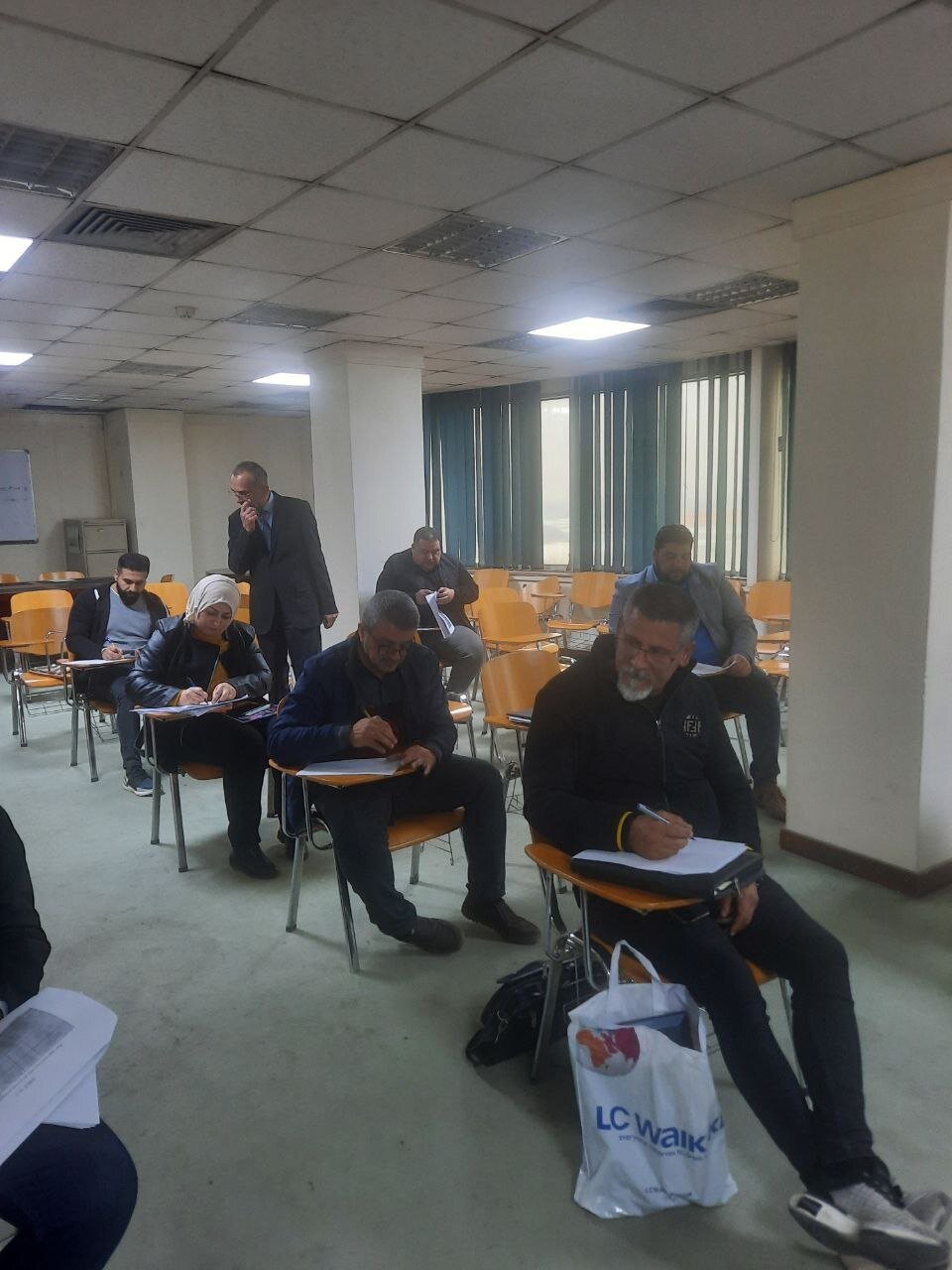Planning and Follow-up Department/Training and Development Division in the Directorate of Housing, one of the formations of the Ministry of Construction, Housing, Municipalities and Public Works, organized a course entitled (Environment and Occupational Safety) on (14-18/4/2024). A number of employees from the Directorate’s headquarters, ministry formations, and the General Secretariat of the Council of Ministers participated in it, in which the lecturers, senior engineer (Marwa Wasfi Hameed) and technical director (Munther Jaafar Sadiq), , addressed several topics:
– A definition in the environmental field of good ventilation, sunlight, and planting trees in gardens.
– Awareness in the field of projects about wearing clothes, shoes and belts, and educating workers and employees to prevent accidents.
– Awareness of the field of fires and how to prevent the occurrence of fires by adhering to the conditions and controls in force for the purpose of civil defense, methods of treating fires, how to use fire extinguishers, and doing practical practice.
-Defining first aid and treating the injured in the event of a fracture, bleeding, or fainting, and immediately calling an ambulance.
The course concluded with all participants undergoing a test to review the information and awarding evaluation marks to the participants.


